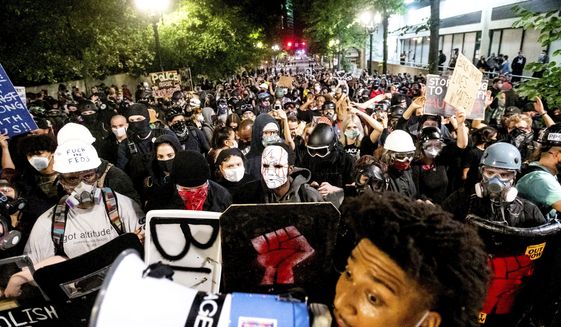 |
| Leah Millis/Reuters |
Joining President Trump in Kenosha yesterday was Attorney General Barr, who did not mince words about mounting an aggressive federal response to the violence roiling the country. The AG asserted that “radicals” are crossing state lines and “carrying out, planning a coordinated attack on law enforcement, on public property, and on private property. And that can’t be tolerated.”
It is thus worth making a few observations about the Travel Act.
The Travel Act is codified as a crime in the anti-racketeering chapter of the federal criminal code, specifically, in Section 1952. It has been a staple of organized crime cases since the 1980s. As a prosecutor, I charged it more times than I could hope to remember.
In essence, the Travel Act makes it a crime to travel across state lines, or otherwise to use facilities in interstate commerce (e.g., the U.S. mail and electronic communications devices), to commit acts of violence, or otherwise to promote “unlawful activity” (which Section 1952 broadly defines — a definition that explicitly includes arson and extortion). There is a broad range of penalties. If the offense involves carrying out violent activity, there is a potential 20-year prison sentence; if death results, a defendant can be sentenced to “any term of years or for life.”
The Travel Act is very attractive to federal prosecutors for three reasons.

First, most violent street crime is not federal — it is a state-law matter. But the Travel Act is a route to triggering federal jurisdiction. Consequently, it makes violent-crime conspiracies reachable by federal prosecution. Even a lot of crude gang activity has some plausible connection to interstate commerce (e.g., cocaine trafficking, even on a local, street-level scale, involves a substance that has been shipped in interstate and international commerce).Read the rest from Andrew C. McCarthy HERE.
If you like what you see, please "Like" us on Facebook either here or here. Please follow us on Twitter here.

No comments:
Post a Comment